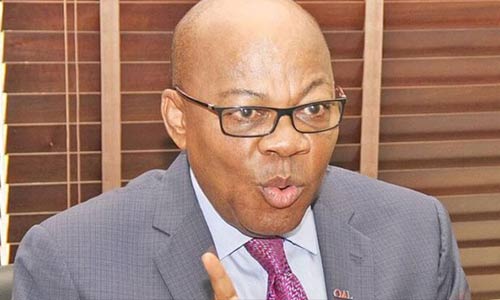A Senior Advocate of Nigeria (SAN), Olisa Agbakoba, stated that the Federal Government has the potential to generate an annual revenue of N8 trillion from the marine and blue economy sectors. He emphasized that by exploring various aspects of this sector, Nigeria could significantly bolster its economy.
Agbakoba, responding to inquiries from The Nation, highlighted that the maritime sector is a major economic driver apart from oil and gas. He noted that past developmental plans had overlooked this sector, causing detrimental effects on public revenue.
He remarked, “With the establishment of a ministry focused on marine and blue economy, it is anticipated that policies will be formulated to tap into this substantial economy that has been neglected for far too long.”
Citing reports, Agbakoba mentioned that the Apapa ports alone could potentially generate N20 billion daily, equating to about N8 trillion annually. He emphasized the diverse opportunities within this sector that Nigeria should explore to enhance its economic growth.
In a similar vein, policy analyst Mr. Kolawole Johnson expressed his view that President Bola Ahmed Tinubu’s administration has struck gold with the creation of the Ministry of Marine and Blue Economy. He emphasized that this sector holds the key to the nation’s growth and development.
Johnson asserted, “The maritime sector, at this crucial juncture in our national life, is pivotal to the nation’s progress and development. It is essential for Nigeria’s economic growth.”
He continued, “Stakeholders who have advocated for attention to this sector for years have suggested it could potentially generate over N7 trillion for the country annually. The benefits will have a ripple effect across the nation.”
Johnson emphasized that all regions of the country could benefit from the potential of the marine and blue economy sector. He proposed that a Port and an Oil and Gas Logistics Support Base could be established to ease congestion in Lagos ports.
He explained, “A Greenfield Port with three berths and a quay length of approximately 500m could be realized with an investment of around $400 million. This feasible goal could be achieved through government-backed private sector funding, becoming a tangible achievement within three years.”
Johnson further discussed the opportunities for Ondo State and other coastal areas to benefit from investments in the marine and blue economy. He explained the potential for a Port and an Oil and Gas Logistics Support Base in Ondo State, emphasizing the economic and efficiency benefits it would bring.
He concluded, “The port will serve as a vital alternative to the congested Lagos Ports, leading to time and cost savings, increased economic productivity, and reduced goods costs. It will also act as
a better gateway for cargoes heading towards the Southeast and South-South regions, creating numerous job opportunities and overall economic growth.”
In this article

